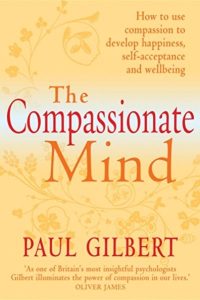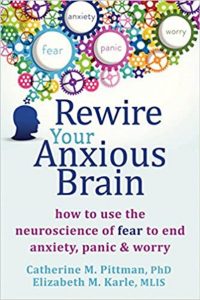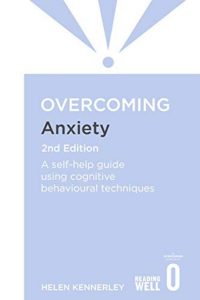Panic Disorder! M’s story…
About panic disorder…
Before you can begin to combat the awful symptoms of panic disorder you need to think about why you are having them. Dig down deep and think,
- What has recently changed in my life?
- Am I feeling under constant stress because of recent events or past events in my life?
- Am I putting myself under too much pressure?
- Is my boss/employer putting me under too much pressure?
- Am I grieving the loss of somebody close to me?
- Am I suffering from physical illness or pain?
- Am I having thoughts about a traumatic event that happened recently or in the past?
- Am I suffering abuse or bullying in any way?
There are lots of reasons why people experience extreme anxiety and panic attacks, I wish I had asked myself those questions and not tried to hide the stress I was experiencing before I started to suffer from them.
A panic attack is a truly awful thing to experience and I wouldn’t wish it on anybody, but when they start to become a regular occurrence, they can really take over your life if you let them.
My story.
In the preceding years before I started suffering from extreme anxiety and panic attacks, I had been suffering from low mood and anxiety as a result of multiple events in my life, but I had tried to push through and ignore my feelings, basically because it was too painful to address them and I feared I might fall apart if I let them get a hold of me.
To cut a long story short, in the 4 years leading up to my first panic attack I had experienced the following events in my life, some good but some very bad!
- I had successfully ditched Prozac after 18 years of taking it non-stop (it was previously prescribed when I was a teenager because of an eating disorder and anxiety and depression)
- I had a part-time job as a dance teacher/performer and a part-time job as a medical secretary for the NHS, and I was a very busy bee although happy because I enjoyed the balance between the 2 jobs
- I got married (the best day of my life!)
- About 6 months after I got married, I sustained a neck injury whilst I was dancing, which wasn’t improving so I had an MRI. The MRI revealed that I had a tumor in one of the vertebrae in my neck, so I was put under surveillance with regular MRIs for 2 years in case it started to grow or turn sinister (this was a big shock to me, to say the least).
- I was unable to plan for a child because if I did, I wouldn’t be able to have the MRI’s, so I was advised to wait
- I lost both of my grandmothers within a few months of each other, and this was very upsetting for me. I felt a huge loss as I was very close to both of them.
- I was given the all-clear after 2 years of surveillance under the orthopaedic and neurosurgeons (Hooray now maybe I could start planning for a baby?)
- A few months down the line I started to develop severe lower back and pelvic pain which radiated down to my legs
- The physiotherapy wasn’t working, so I tried an osteopath, but I was unable to walk properly let alone dance.
- I gave up my job as a dance teacher/performer due to chronic pain and took more hours working as a medical secretary
- My husband and I still could not afford the rent and we had to move in with my parents
- My job as a medical secretary was becoming more and more stressful, the workload was increasing and I was taking on more and more responsibility
- I then started to suffer from extremely heavy periods and digestive problems. I became anaemic as a result and lost a lot of weight.
- I had gynae scans and swabs, but they found no reason for my heavy periods, I was told it was stress-related and offered anti-depressants which I declined (4 years later I was finally diagnosed and treated for Stage 3 endometriosis!)
With all of the above, I was slowly deteriorating mentally and physically. I was suffering from daily pain, sleeplessness, fatigue, digestive issues and I was unable to do the one thing I enjoyed DANCE.
My circle of friends was all dancers or dance teachers and I stopped going to dance events to see them because it was too painful to see everyone dancing when I couldn’t join in.
I started to isolate myself and not go out even just to meet friends for a coffee. I couldn’t face it. I really thought I would never dance again. I felt like I was dying inside, but I didn’t want to fall into a depression, so I tried to focus on other things to help me keep positive.
I took up Pilates hoping it would help with my pain and I tried not to talk too much about how I really felt to my family, for fear of worrying them. In reality, I was not coping well.
At night I would wake on and off because I couldn’t get comfortable in bed with the pain and then I would start to think dark thoughts about death, my death, or the death of those close to me.
Other times I would worry about whether I had done things correctly at work, how the next day might be, how much work I had to do, would I ever dance again, what was wrong with me, would my husband leave me….and it goes on!
Having previously been so fit and strong I now felt vulnerable, weak, worthless, and a failure! In order to try and cope with all of my anxieties, I had started engaging more and more in OCD behavior.
I have previously suffered from OCD at different times in my life, but never had it gotten so bad as it was now!
I kept this hidden from everyone and I never mentioned my OCD behavior to anyone until I started to have therapy for General Anxiety and Panic Attacks, because I feared they would really think I was mad!
I have written an article on OCD, please do check it out after reading this one if you would like to know more about the condition.
My first panic attack.
I had just turned 40 when I experienced my first panic attack. It happened one morning on the way to work, I hadn’t slept much the night before due to my unrelenting back pain and I was feeling apprehensive about how I was going to get through the day at the office.
I had a coffee at the station Costa Coffee shop with my husband and took 2 Paracetamol tablets (Ibuprofen and Co-codamol made me sick so it was my only option).
As we walked down to the platform, there were people running in all directions due to the usual disruptions to the rail network. I was trying to dodge them, frightened that they would crash into me and cause me more pain.
When we got down on the platform it was swarming with people trying to get on an already over-packed train then all of a sudden I started to feel a tightness in my chest, I felt so dizzy I felt drunk and my legs felt so weak and numb. I said to my husband “Babe I’m feeling really strange” and then my heart started to pound out of my chest.
I thought I was having a heart attack, it really hurt, and then I saw my life flash before me I panicked some more, and I couldn’t breathe. I was gasping for air and then nothing.
A while later I found myself sitting on the platform floor, my husband cradling me in his arms and people offering me water.
I tried to get up, but my legs wouldn’t work and then I started to shake, and I couldn’t stop. My husband asked for an ambulance and the paramedics took me to A & E where they did blood and an ECG.
All was normal, except for some slight anemia. “Classic panic attack,” the hospital consultant said, “I will write to your GP and I suggest you book a follow-up with them to get some help with stress management”.
Medication and therapy.
I waited 7 long months to see a CBT practitioner on the NHS and in the meantime, I had missed had days off work and had been admitted to A&E numerous times with more panic attacks!
I was starting to feel suicidal and had self-harmed on a few occasions.

I was regularly offered anti-depressants in the form of Citalopram and Prozac, and again I declined.
I had done my research since the coming of Prozac and I knew that the best way for me to deal with my emotions was through psychological therapy, not medication.
It had taken me a year to get off the Prozac because of the withdrawal symptoms (yes the doctors say they are not addictive, but there is evidence to prove that they are, and coming off them is tough, especially without the help of a psychotherapist).
They gave me a drug in A&E called Promethazine, which is actually a strong antihistamine that gives a sedative effect. Well, I thought it was better than taking Diazepam, so I gave it a try.
It zombified me and after 3 days I felt deeply depressed, so I stopped taking it and the panic attacks came back with a vengeance!
Finally, I started therapy although by this time I was starting to doubt that it could help me and that maybe I would have to go back on anti-depressants.
However, after just a few weeks of therapy, my mood started to lift and I felt that I could see a way forward and that I might have the strength to tackle these awful panic attacks and feelings of extreme anxiety just with therapy alone. I was ready to take on the challenge!
The therapist explored with me the reasons I might be feeling these overwhelming feelings of fear and panic.
We tracked back over the previous years and talked about recent events that had happened in my life, but we also talked about events that had happened in my childhood and teenage years that had shaped how I saw myself as a person.
Not surprisingly, it turned out that I had pretty low self-esteem back then and I had had a low sense of worth ever since. I felt like I always needed to prove something.
I felt I wasn’t good enough unless I was pushing myself hard and my mind was always busy and now that I was suffering from chronic pain and I could no longer dance and live up to my own high expectations, I felt a sense of uselessness and emptiness, I felt lost and I felt dead inside!
Through therapy and a lot of reading, I learned to feel some compassion towards myself instead of beating myself up for things I had no control over i.e. injuries and illness, the inability to keep on top of an impossible workload, and the responsibility of everyone else in my family!
My feelings of being overwhelmed were partly caused due to the pain was in and the lack of sleep I was having, but also due to my own mind ruminating about problems and thoughts about myself being weak and vulnerable.
I realized that previously I had set such high standards for myself in life that now that I couldn’t possibly reach them, I felt like a failure in every sense.
During therapy I not only learned how to control the feelings of panic when they came over me, I learned that I needed to let go of the feeling that I needed to control everything in order to protect myself and others from danger because I was again imposing impossible tasks upon myself and literally driving myself crazy!
Luckily my therapist also spotted that I was also suffering from OCD-type anxiety and I then opened up to her about the checking and rituals I was performing on a daily basis in order to try to counteract my anxieties. Of course, I needed a different type of therapy for OCD which I engaged in at a later date.
The origin of panic attacks.
Something that really helped me to overcome the panic attacks was knowing exactly what was happening in my brain and my body and why.
I did lots of reading and research into the mechanics and origin of panic attacks and I found that understanding them helped me to ride through them and eventually stop them from happening.
There are two very different ways that anxiety begins; through what we think about and the reactions that we have to our environment. Anxiety is initiated by two very different areas of the brain.
The Cortex and the Amygdala. Let me tell you a little bit about their functions.
The Cortex fills the upmost part of the skull and is divided into different functions such as processing vision, hearing, and other sensory information. The Cortex is the perceiving and thinking part of the brain which enables us to reason, create language, and engage in complicated thinking. It is what makes us human.
The Cortex pathway is often a source of anxiety because the front lobes interpret situations, anticipations, and interpretations and this often leads to anxiety.
For example, anticipation can create worry, worry is an outgrowth of anticipation of negative outcomes in a situation.
It is a Cortex-based process that creates thoughts and images that provoke a great deal of fear and anxiety.
Some of the most creative people are sometimes the most anxious because their creativity gives them the ability to dwell on extremely frightening thoughts and images.
The Cortex can also contribute to changing your responses to threatening situations, which is why when dealing with anxiety the Cortex is capable of evaluating the usefulness of various responses to the dangers that you face.
Thanks to the influence of your Cortex you can decide not to physically fight someone as it might put you in more danger and have some nasty consequences, or you can choose not to run away when you hear exploding fireworks because they are not going to harm you.
When therapists help people with modifying their thoughts to reduce anxiety, they are focused on the Cortex pathway.
The Amygdala:
The Amygdala again has two halves one in the left hemisphere and one in the right hemisphere.
It is a small almond-shaped structure located near the center of the brain. Although the Amygdala is small, it is made up of thousands of circuits of cells dedicated to different purposes.
These circuits influence love, bonding, sexual behavior, anger, aggression, and fear. The role of the Amygdala is to attach emotional significance to situations or objects to form emotional memory.
Obviously, that emotional memory may be positive or negative. Although the Cortex pathway may be more familiar or understandable because we are often aware of the thoughts it produces, the Amygdala initiates the physical experience of anxiety.
Its location and connections throughout the brain enable it to control the release of hormones and activate areas in the brain that create the physical symptoms of anxiety.
In this way, the Amygdala exerts powerful and immediate effects on the body and can literally take over your brain and body when it feels dangerous!
The Amygdala is wired to respond quickly enough to save your life, it can react to protect you from danger before your Cortex even knows what the danger is.
Within the Amygdala is the Central Nucleus which is a small but powerful cluster of neurons and has connections with a number of highly influential structures in the brain, including the Hypothalamus and Brain Stem.
This circuit can signal the sympathetic nervous system (SNS) to activate the release of hormones into the bloodstream, increase respiration, and activate muscles – all in a fraction of a second!
So, you see the Amygdala is a very important part of the brain that we need for survival in an emergency or life-threatening situation. In the past, our ancestors will have relied -on this part of the brain for survival from a real life-threatening situation.
In modern times we rarely come across a real life-threatening emergency, but our mind can be under chronic stress for various reasons; work stress, financial stress, illness, past trauma, etc.
Living with this type of chronic stress can trigger anxious thoughts on a daily basis which originate in the Cortex.
These thoughts keep us on edge, always looking out for potential problems or danger and this very state can trigger a fight or flight response from the Amygdala.
For whatever reason this may happen it is because we are sensing a threat (whether it is real or not real), and once the fight or flight response is triggered your body is flooded with adrenaline and cortisol/
Your blood sugar increases giving you the energy to use your muscles and your heart rate and breathing increase in order to pump the blood into those muscles, in order for you to fight or flee the situation.
This process can even keep you from experiencing pain.
Of course, the fight or flight response is a totally natural and healthy response if you really need to use the adrenaline to activate your muscles to fight or run, but the effect it has on the system when there is no need for this is overwhelming and uncontrollable!
When it happens for no reason you are experiencing a panic attack, but the process happens quicker than your Cortex (the reasoning part of the brain) can understand what is happening.
We, therefore, start to experience our fear and anxiety responses without being about to control them.
We can experience a truly frightening rush of sensations throughout the body and this panics us even more.
- heart palpitations
- a feeling of restricted breathing, hyperventilation
- burning and tingling sensations
- chest pain
- stomach pain
- pressure in the head
- dizziness
- shaking
- a feeling of impending doom – like feeling that this is the end or something devastating is about to happen.
When you are experiencing a panic attack the Amygdala is in the driving seat and you are the passenger!
It doesn’t matter if people around you are explaining to you that you are fine and that everything is alright, you cannot focus on what they are telling you or reason, and there is a neurological reason for this – it is because the Amygdala has the capability to override other brain processes.
You literally can’t think straight when the Amygdala is in control.
So how do you fight a panic attack?
You can’t really fight it, it just needs to happen time and time again, before you actually conquer the reaction and it stops happening.
So how did I do it?
Firstly I had CBT therapy to reduce my anxious thoughts, but at the same time, I had to face situations that may trigger a panic attack, knowing that it may happen and knowing that it probably wouldn’t last more than 20-30 minutes.
At first, I made sure that I had someone around me to support me if I was feeling anxious about a situation, in my case it was my husband. For me, the trigger was when I was faced with a situation with crowds of people or a feeling of not being able to escape from somewhere.
I had to face situations like going to a crowded shopping center, getting on a crowded platform or train, and going to a crowded theatre or cinema.
When I started to feel anxious, I used techniques that my therapist gave me, such as mindfulness and distraction, and of course, I had the support of my husband to get me through.
Sometimes I still had a panic attack and sometimes I didn’t, but when it did my husband took me somewhere to sit calm and just talked to me and held me close to his chest while I went through it – he just repeated over and over that I was fine and it will all be over soon, and it ended just as he said.
When I wasn’t around my husband, at work, for example, I made my employer aware and when I felt the feeling come over me, I went to his office and sat with him.
I remember shaking, my heart was palpitating, and I was trying to take slow breaths, but just the fact that he was there and just talking to me helped me through.
Luckily it never happened when I was alone on the street, but I know that when I collapsed on the station before people were always very helpful, giving me water, sitting me down somewhere, talking to me, and calling emergency services.
So, I just had to trust that they would help me again. My worst panic attacks actually happened during the night. I would fall asleep for 5-15 mins and they wake up with a burning sensation spreading all over my body, my heart would be pounding, I would feel sick and sometimes vomit.
At first, I thought I was having some kind of allergic reaction, I felt like something was invading my body. I even woke up once with crawling sensations in my face, head, chest, and down my arms, like crawling insects.
When I went to A&E they diagnosed the experience as a panic attack.
For a long time, these nocturnal panic attacks were quite regular, but when I was having one my husband would get up and turn the light on, turn the TV on, and just lady with me on the bed and talk to me until it was all over.
Later on, I found that actually getting up, pacing around, and trying to breathe slowly helped to get rid of some of the adrenaline and the panic attack didn’t last as long. After a while, I basically stopped being scared of the attacks and they stopped happening.
I have now not had a panic attack for 2 years, even though I have probably been through the worst 2 years of my life so far in terms of my physical health.
I have had countless investigations and procedures and a big surgery to remove endometriosis over the past 2 years, all of which made me feel extremely anxious, but I never had a panic attack again through all of this!
So, for those of you who are suffering from extreme anxiety or panic attacks, please know there is a way forward and you can conquer these awful experiences – without medication if possible!
Why do I say preferably without medication, well let’s just say it is my personal view through my personal experience, but there are also a lot of scientific facts as to why it is better to deal with anxiety disorders and panic attacks without medication, if possible.
Doctors tend to prefer to give medications as a way to provide relief and it is tempting to choose this form of anxiety relief, particularly as for some people it can provide instant relief or at least some benefit over a period of time, depending on which drug you are taking.
What patients need to understand before taking these drugs is the long-term consequences of taking anti-depressants or anxiolytic drugs, and also consider the side effects that they cause.
Why would you want to try and solve your problem, by causing yourself another load of problems? Although a variety of medications have been said to help in treating anxiety disorders, none of them are seen as ideal for every person.
Also, keep in mind that just a medication that’s very good at reducing anxiety won’t necessarily change the process in the brain that creates the anxiety in the first place. It may temporarily relieve a problem, but it won’t target the cause of the underlying problem.
SSRI drugs…
The reason lots of people that take SSRIs for example become hooked on them and find it difficult to come off, or otherwise take them short-term, but then end up taking them on multiple occasions due to the anxiety returning once they stop the drug.
In terms of these drugs, doctors still don’t really know what effects they have on the brain and how they work.
For example, with SSRIs, it was previously thought that they worked by stimulating the production of serotonin in the brain and that the increased level of serotonin in the brain was responsible for reducing symptoms associated with anxiety and depression.
However, it has since been discovered that if this was the case the benefits of SSRIs would be noticed immediately, whilst the benefits (if any) are usually noticed after a few weeks to a month.
In some cases, SSRI drugs cause more anxiety in the first week or so before it is supposed to start working.
In fact, in my experience the last time I tried Prozac after not taking it for 8 years, I took one tablet and it had an awful effect on me.
I experienced one of the side effects called Akathisia, which is an inability to stop moving due to extreme restlessness. I also experienced palpitations, vomiting, and was shaking for hours.
It was like having a full-blown panic attack for hours and I wouldn’t wish it on my worst enemy.
This is the reaction I had, even though I had previously taken it for 18 years with a break of 8 years in between.
The difference is that when I started taking it at the age of 18 I was severely depressed and the only symptom I noticed was slight jitteriness and nausea for the first month.

This time I was suffering from a physical condition (endometriosis) which is thought to be more hormonal and I was not so severely depressed or anxious to the point that I couldn’t go out and get on with things.
I was having CBT therapy for dealing with chronic pain, but the GP suggested the antidepressant to help with the pain. After that experience, I never want to touch an antidepressant tablet again.
The other thing is that there is actually no way to measure levels of serotonin in the brain, so how do we know if the levels go up or down, or if depressed people have lower levels and other people???
That’s what I was told when I was 18 by my GP, “I think you have a chemical imbalance in your brain and these tablets should sort out the imbalance, but you will need to be on them for life”. Then he prescribed me Prozac.
Benzodiazepines
Benzodiazepines such as Diazepam are often prescribed to relieve anxiety or insomnia; however, they not only cause lots of side effects, and prolonged use leads to physiological dependence. This means that when you stop taking them the withdrawal will cause your anxiety to worsen.
Benzodiazepines work by having a sedating effect on the Amygdala and the Central Nervous System, but if your Amygdala is sedated it interferes with the process of re-wiring your brain through CBT techniques, so you never learn how to overcome the fear without the drug.
I only have experience of taking SSRIs and Benzodiazepines and had bad experiences with both, so I will only comment on those drugs for now.
But I have also done lots of research into other types of drugs used for anxiety, depression, and pain management such as SNRIs, and I am afraid I have found that the evidence is much the same.
People end up taking them long-term or for life if they don’t add in CBT therapy, support groups, lifestyle changes, and alternative therapies such as meditation, yoga, Pilates, and exercise in some form to get them through.
Unfortunately, in modern society, people want a quick fix, but there is no quick fix if you are going to succeed in managing anxiety and depression. It is a slow and painful process, but it will also teach you things about life, how to live better, and what is important.
It will in some cases make you a better, stronger person.
I tried to grasp as much support as I could, all in search of a solution, to help me answer questions I had and so I began by reading a lot of books.
These books are very helpful in helping you understand your anxiety and helping you get out of the cycle.
You may access these books by clicking either on the links above or the book covers below…
My wife has read this book in a jiffy! It helped her during her dark times to find compassion and love for herself. For somebody like M, who suffered from severe depression, I noticed that the harshest critic of her was herself. It is never helpful to be told to pull ourselves together by others but saying it to ourselves leads us in only one direction – into a terrible despair.
I listed this book because M also suffered from anxiety at that time, it helped her mindset and depression. An obsessing, ruminating, and dwelling on things may or may not happen, but this book makes it simple to understand, how to manage your fear. Your brain is a very powerful tool, and the more you work to change your mindset, the better you’re going to feel.
This is another book that my wife reached for during her depression because it offered my wife a self-help program, written by one of the leading authorities in CBT. M also suffered at the time with OCD. A whole range of anxieties and fears are explained, from panic attacks and phobias to obsessive-compulsive disorder and anxiety. That really helped her!


About M.
I’m M, Lucjan’s wife! At the age of 44, I found out that I suffer from endometriosis, which has taken years to diagnose. The following year, I was also diagnosed with fibromyalgia disorder…



